Phonics skills development Vowels Worksheets for Ages 6-7
5 filtered results
-
From - To
Enhance your child's phonics skills with our engaging Vowels Worksheets designed specifically for ages 6-7. These resources focus on developing a strong understanding of vowel sounds through fun and interactive activities. Students will enjoy practicing short and long vowels, identifying vowel sounds in words, and completing engaging exercises that reinforce their learning. Designed by educators, our worksheets aim to improve reading and pronunciation skills while making learning enjoyable. Perfect for both in-class and at-home use, these materials provide a solid foundation in phonics, setting your child up for future literacy success. Explore our collection today and watch your child thrive!
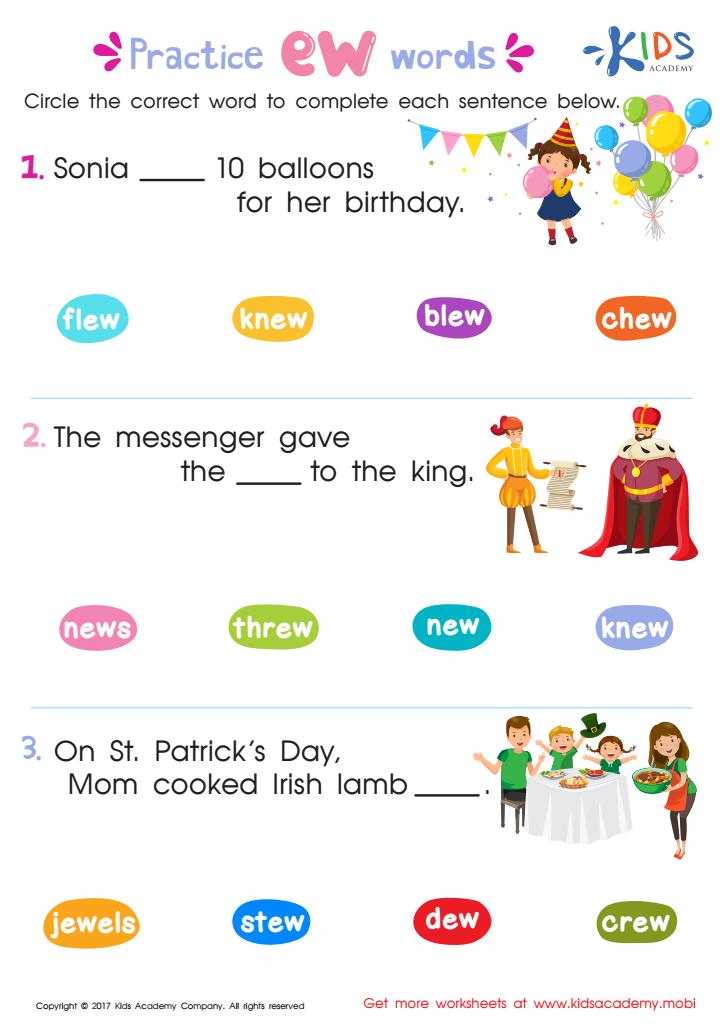

EW Words Worksheet
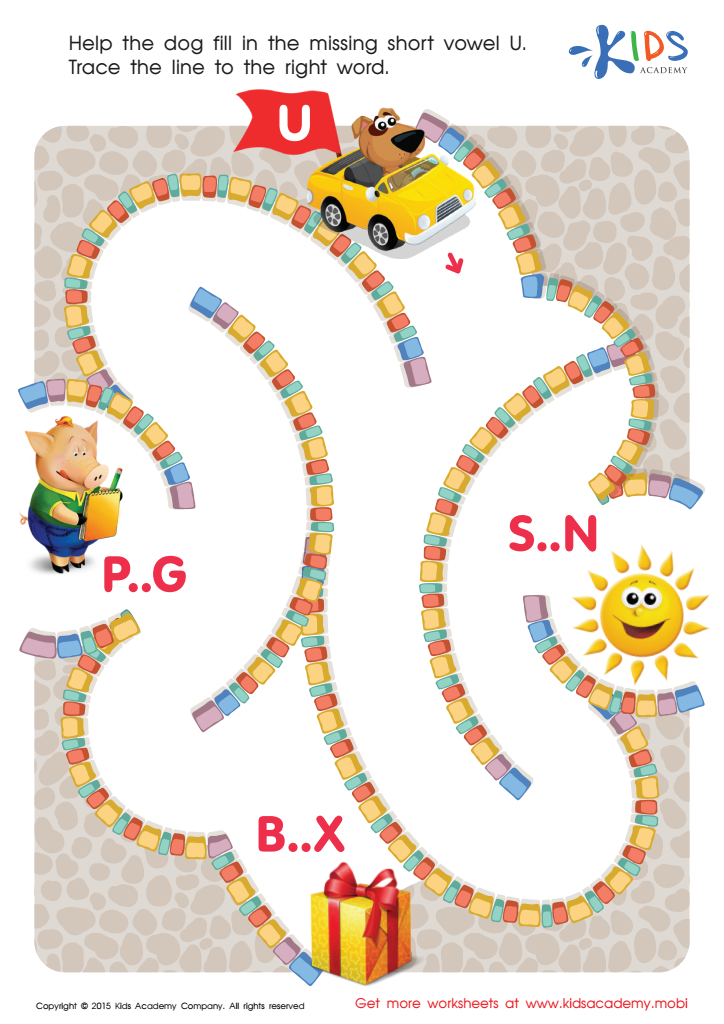

Short Vowel Sound U Worksheet
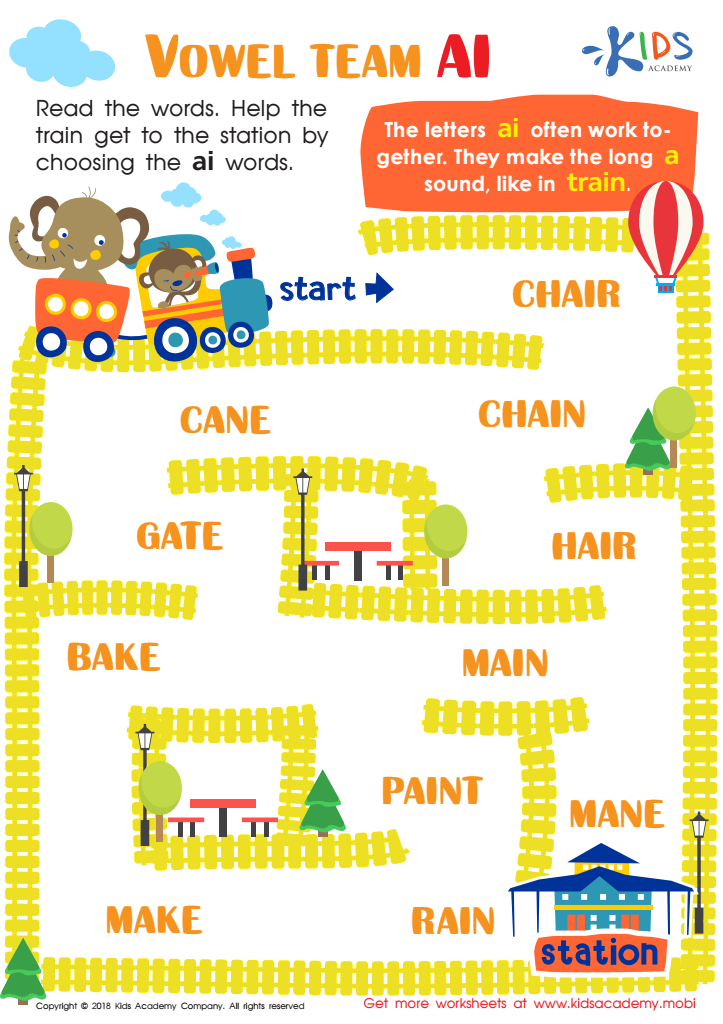

Vowel team ai Worksheet
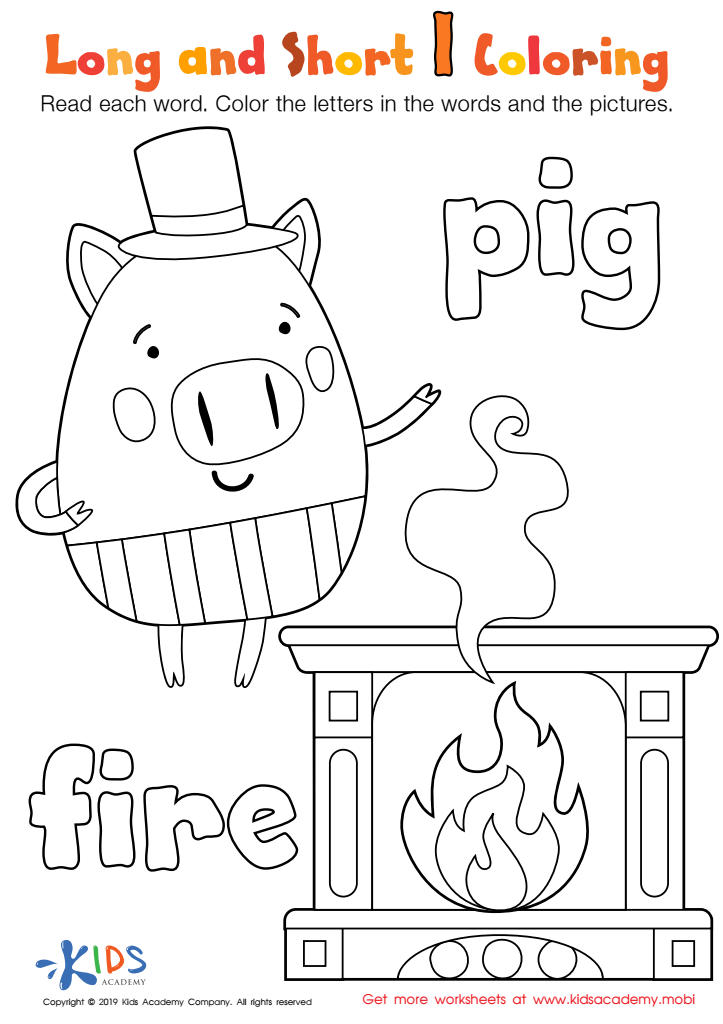

Long and Short I Worksheet
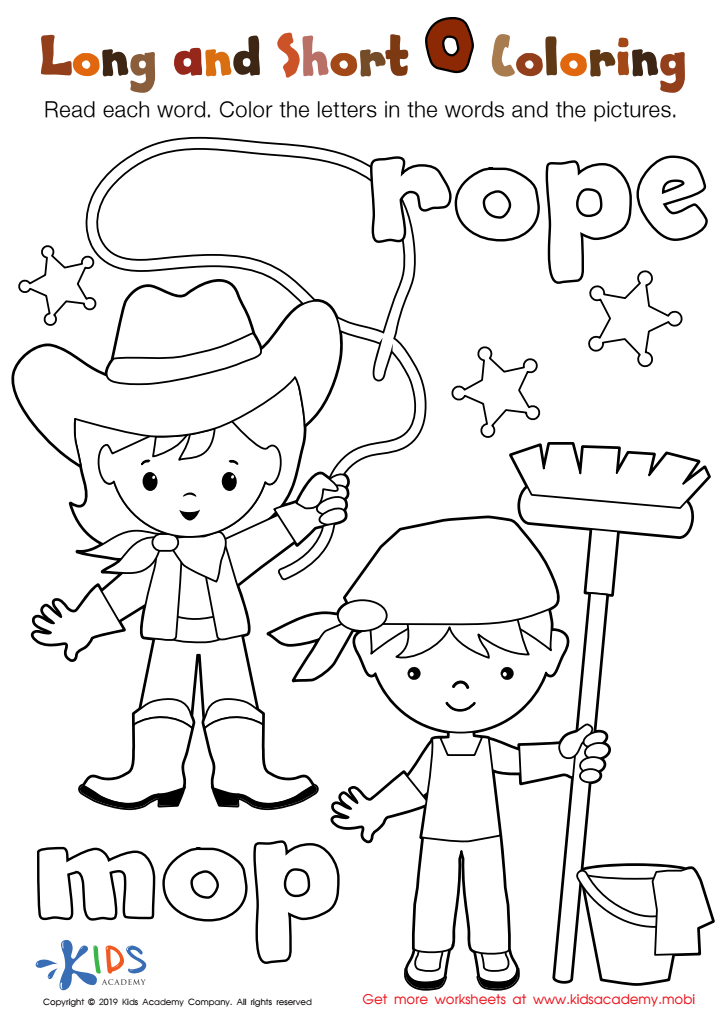

Long and Short O Worksheet
Phonics skills development, especially focusing on vowels, is crucial for children ages 6-7 as it lays the foundation for reading and writing proficiency. At this age, children are transitioning from learning to read to reading to learn. Understanding vowels—both short and long sounds—empowers them to decode words, enhancing their vocabulary and comprehension abilities.
When children grasp vowel patterns, they can better recognize familiar words, improving their fluency and confidence in reading. This foundational knowledge also supports spelling and writing, enabling them to express their thoughts clearly and creatively.
Moreover, strong phonics skills can significantly boost a child's overall academic performance. Early intervention in phonics, particularly concerning vowels, helps prevent future reading difficulties and fosters a positive attitude towards learning. Parents and teachers play a vital role in reinforcing these skills through engaging activities like phonics games, reading together, and encouraging writing exercises.
Ultimately, nurturing phonics skills nurtures a love for reading and learning, instilling a lifelong advantage in educational success. As children develop these essential skills, they unlock the world of literature, paving the way for a brighter future both academically and personally.
 Assign to My Students
Assign to My Students













